
Dr. Elias Obeid says ongoing monitoring after treatment helps detect recurrence early and identify late effects, supporting survivorship for patients.

Dr. Elias Obeid says ongoing monitoring after treatment helps detect recurrence early and identify late effects, supporting survivorship for patients.

Dr. Suneel Kamath emphasized the growing importance of understanding biomarkers in patients with gastrointestinal cancers.

Relacorilant plus Abraxane showed benefit without biomarker testing, potentially expanding treatment access for patients with platinum-resistant ovarian cancer.

Dietitians share a fiber- and protein-rich pastina bean soup to help patients with colorectal cancer stay nourished and manage GI symptoms during treatment.

World Cancer Day highlights the global impact of cancer, raising awareness, fostering unity and reminding us to support survivors and patients together.
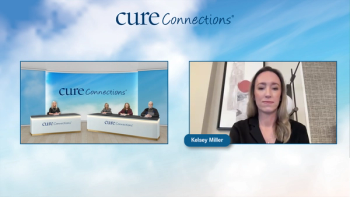
In closing, the panel of experienced multiple myeloma care partners offers a powerful, unified message of hope and actionable advice.

A common care partner challenge is managing guilt when engaging in activities for personal wellness, especially if the multiple myeloma patient cannot participate.

Former U.S. goalkeeper opens up about a large B-cell lymphoma diagnosis and finally reaching remission after chimeric antigen receptor T cell therapy, urging patients to advocate and seek options.

Dr. Joshua Sabari explains how surgery, radiation and therapy may reduce lung capacity and shares steps survivors can take to protect breathing health.
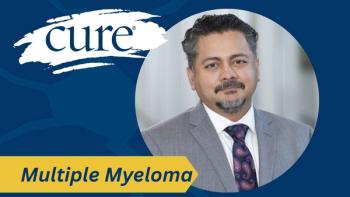
CURE recently spoke with CEPHEUS study investigator Dr. Saad Z. Usmani, chief of the myeloma service at Memorial Sloan Kettering Cancer Center.

A gynecologic oncologist discusses staging, treatment choices, sexual health, mental health and HPV vaccination during cervical cancer awareness month.
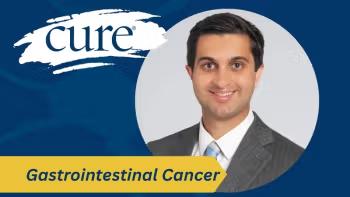
Dr. Suneel Kamath addresses patient concerns on the topic of clinical trial participation in the gastrointestinal cancer treatment space.

CURE sat down with Dr. Kathie-Ann Joseph to discuss surgical advancements for individuals with breast cancer.

Minimal residual disease testing can offer psychological comfort to patients and survivors as well as insight into potential treatment strategies for care providers.

Risk assessment helps patients understand why cancer occurred, the role of genetics, treatment options and prevention strategies for themselves and family.

Dr. Suneel Kamath discusses the importance of biomarker-driven approaches in cancer care following the 2026 ASCO GI Symposium.
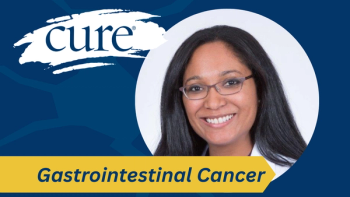
Dr. Tracy Proverbs-Singh explains that caregivers may neglect screenings, medications, rest, and hydration, risking their own health.

Dr. Tracy Proverbs-Singh explains how a multidisciplinary team helps patients with GI cancers manage digestion, absorb nutrients and maintain energy during treatment.

Being a multiple myeloma care partner involves significant logistical and emotional challenges.

Shared decision-making empowers multiple myeloma patients and their care partners to actively collaborate with the medical team on treatment choices.

Dr. Anne Peled shares advice for patients and dispelled myths related to cancer survivorship.
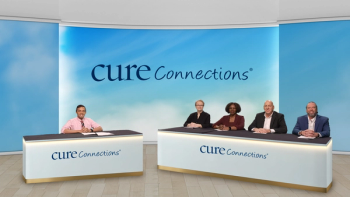
Discover inspiring messages of hope from cancer survivors, emphasizing resilience, scientific advancements, and the importance of community support.

Explore the evolving landscape of myeloma treatment, focusing on maintenance therapies and patient experiences with innovative drug combinations.

For Ashliann Mazeika, a diagnosis at 24 led to a decade-long treatment journey affirmed by the Breast Cancer Index test.

Dr. Anne Peled co-developed the sensation-preserving mastectomy she received after her second diagnosis of breast cancer.

A vaccine combined with Keytruda is associated with a 49% reduction in the risk of recurrence or death.

Modern multiple myeloma treatment often involves complex combination therapies, which significantly impact daily life for patients and care partners.

Ensuring medication adherence for multiple myeloma treatment involves both practical systems and a patient-centered mindset.

For Richard “Rocky” Kimball, a diagnosis of myelodysplastic syndromes, or MDS, necessitated a number of lifestyle changes.

Dr. Nicholas Hornstein explained the concept of ctDNA and how this blood test may help guide treatment decisions, including whether additional therapy is needed.